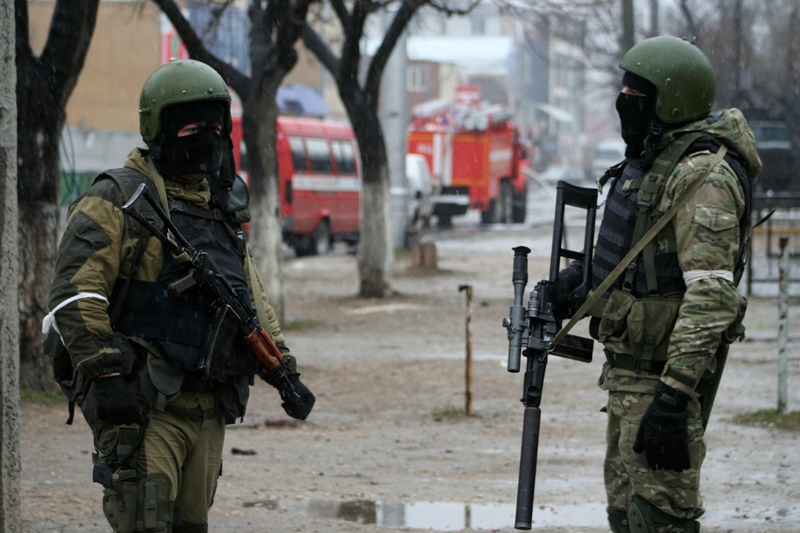The International Press Institute (IPI) today joined 27 other free expression and human rights groups on the second anniversary of the unsolved killing of Russian editor Akhmednabi Akhmednabiyev in Dagestan to repeat a call for Russia’s Federal Investigative Committee to take charge of the investigation.
The groups initially made the request in a letter sent to the head of the Investigative Committee, Aleksandr Bastrykin, on Nov. 2, 2014, the International Day to End Impunity for Crimes Against Journalists. They noted in today’s call that no response to that letter was received, despite a requirement in Russian law that officials respond to written appeals within 30 days.
The full text of today’s statement appears below.
[separator style_type=”single” top_margin=”30″ bottom_margin=”20″ sep_color=”#c1c1c1″ border_size=”” icon=”” icon_circle=”” icon_circle_color=”” width=”50%” alignment=”center” class=”” id=””]
Russia: After two years without justice, investigation into Akhmednabiyev’s murder must be raised to federal level
Thursday 9 July 2015
On the second anniversary of the murder of independent Russian journalist, Akhmednabi Akhmednabiyev, we, the undersigned organisations, call for the investigation into his case to be urgently raised to the federal level.
Akhmednabiyev, deputy editor of independent newspaper Novoye Delo, and a reporter for online news portal Caucasian Knot, was shot dead on 9 July 2013 as he left for work in Makhachkala, Dagestan. He had actively reported on human rights violations against Muslims by the police and Russian army.
Two years after his killing, neither the perpetrators nor instigators have been brought to justice.
The investigation, led by the local Dagestani Investigative Committee, has been repeatedly suspended for long periods over the last year and half, with little apparent progress being made.
Prior to his murder, Akhmednabiyev was subject to numerous death threats including an assassination attempt in January 2013, the circumstances of which mirrored his eventual murder. Dagestani police wrongly logged the assassination attempt as property damage, and only reclassified it after the journalist’s death, demonstrating a shameful failure to investigate the motive behind the attack and prevent further attacks, despite a request from Akhmednabiyev for protection.
Russia’s failure to address these threats is a breach of the State’s “positive obligation” to protect an individual’s freedom of expression against attacks, as defined by European Court of Human Rights case law (Dink v. Turkey). Furthermore, at a United Nations Human Rights Council (HRC) session in September 2014, member States, including Russia, adopted a resolution (A/HRC/27/L.7) on safety of journalists and ending impunity. States are now required to take a number of measures aimed at ending impunity for violence against journalists, including “ensuring impartial, speedy, thorough, independent and effective investigations, which seek to bring to justice the masterminds behind attacks”.
Russia must act on its human rights commitments and address the lack of progress in Akhmednabiyev’s case by removing it from the hands of local investigators, and prioritising it at a federal level.
More needs to be done in order to ensure impartial, independent and effective investigation.
On 2 November 2014, 31 non-governmental organisations from Russia, across Europe as well as international, wrote to Aleksandr Bastrykin calling upon him as the Head of the Investigative Committee of the Russian Federation, to raise Akhmednabiyev’s case from the regional level to the federal level, in order to ensure an impartial, independent and effective investigation. Specifically, the letter requested that he appoint the Office for the investigation of particularly important cases involving crimes against persons and public safety, under the Central Investigative Department of the Russian Federation’s Investigative Committee to continue the investigation.
To date, there has been no official response to this appeal. The Federal Investigative Committee’s public inactivity on this case contradicts a promise made by President Putin in October 2014, to draw investigators’ attention to the cases of murdered journalists in Dagestan.
As well as ensuring impunity for his murder, such inaction sets a terrible precedent for future investigations into attacks on journalists in Russia, and poses a serious threat to freedom of expression.
We urge the Federal Investigation Committee to remedy this situation by expediting Akhmednabiyev’s case to the Federal level as a matter of urgency. This would demonstrate a clear willingness, by the Russian authorities, to investigate this crime in a thorough, impartial and effective manner.
Supported by
1. ARTICLE 19
2. Albanian Media Institute
3. Analytical Center for Interethnic Cooperation and Consultations (Georgia)
4. Association of Independent Electronic Media (Serbia)
5. The Barys Zvozskau Belarusian Human Rights House
6. Belorussian Helsinki Committee
7. Center for Civil Liberties (Ukraine)
8. Civil Society and Freedom of Speech Initiative Center for the Caucasus
9. Crude Accountability
10. Helsinki Citizens’ Assembly – Vanadzor (Armenia)
11. Helsinki Committee of Armenia
12. Helsinki Committee for Human Rights in Serbia
13. Helsinki Foundation for Human Rights
14. The Human Rights Center of Azerbaijan
15. Human Rights House Foundation
16. Human Rights Monitoring Institute
17. Human Rights Movement “Bir Duino-Kyrgyzstan”
18. Index on Censorship
19. International Partnership for Human Rights
20. International Press Institute
21. Kharkiv Regional Foundation -Public Alternative (Ukraine)
22. Kazakhstan International Bureau for Human Rights and Rule of Law
23. Moscow Helsinki Group
24. Norwegian Helsinki Committee
25. PEN International
26. Promo LEX Moldova
27. Public Verdict (Russia)
28. Reporters Without Borders
